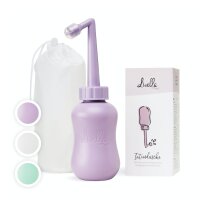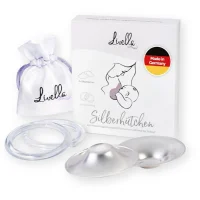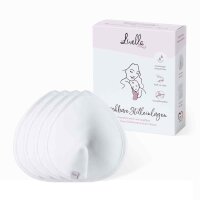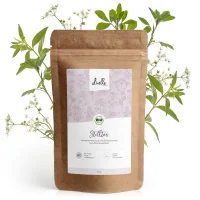Heartburn is one of the most common discomforts experienced by many women during pregnancy. It occurs when stomach acid flows back into the oesophagus, causing a burning sensation in the chest or throat. These symptoms can be especially uncomfortable after meals or when lying down, impacting your overall wellbeing. Many pregnant women wonder how to relieve this unpleasant symptom without harming their baby or themselves. In this blog, you will learn about the causes of heartburn during pregnancy and find tips and natural remedies to help ease your discomfort.
Table of contents
Causes of Heartburn During Pregnancy
Natural Remedies and Tips for Relieving Heartburn
Treating and Preventing Heartburn
Summary
FAQ
Causes of Heartburn During Pregnancy
The causes of heartburn in pregnancy are directly related to the physical changes your body undergoes. These changes include shifts in hormones and increased pressure on the stomach, which both affect digestion.
- Hormonal Changes: During pregnancy, the hormone progesterone increases, relaxing muscles throughout your body, including the lower oesophageal sphincter, which normally keeps stomach acid in the stomach. When this muscle relaxes, it can allow acid to rise into the oesophagus, leading to the uncomfortable burning sensation known as heartburn.
- Changes in the Stomach: The digestive process slows down during pregnancy, meaning food stays in the stomach longer. This can increase the production of stomach acid, which raises the likelihood of heartburn.
- Increased Pressure on the Stomach: As the baby grows, pressure on the stomach increases. This can push stomach contents back into the oesophagus, causing heartburn. Many women notice their heartburn symptoms become more frequent or severe as the pregnancy progresses, especially in the third trimester.

Natural Remedies and Tips for Relieving Heartburn
Luckily, there are many simple, natural methods to manage heartburn during pregnancy without the need for medication. Here are some helpful tips:
- Dietary Tips and Foods: It’s a good idea to eat smaller, more frequent meals throughout the day, rather than large meals. This can prevent your stomach from becoming too full. It’s also beneficial to avoid certain foods that are known to trigger heartburn, such as spicy foods, fatty or fried foods, citrus fruits, and chocolate. Eating slowly and chewing food thoroughly can aid digestion. Certain foods like bananas, almonds, and porridge can help reduce heartburn for some women.
- Lifestyle Adjustments: In the UK, it’s common advice to elevate the head of your bed or use extra pillows to keep your upper body raised when sleeping. This helps prevent stomach acid from travelling back into the oesophagus during the night. Staying upright for at least an hour or two after eating, and wearing loose, comfortable clothing that doesn’t press on your belly, can also help alleviate symptoms.
- Natural Remedies: Many pregnant women in the UK find relief from drinking chamomile or ginger tea to soothe heartburn. A small glass of warm milk can also neutralise stomach acid. Chewing almonds, which are naturally alkaline, may help balance acidity in the stomach, providing some relief.
Treating and Preventing Heartburn
If natural remedies aren’t providing enough relief, there are other steps you can take to manage heartburn during pregnancy.
- Medical Treatments: If your symptoms are severe, you can try over-the-counter antacids that are safe for pregnant women, such as calcium carbonate (Rennie or Tums). Always consult with your midwife or GP before taking any medication during pregnancy to ensure it’s safe for both you and your baby.
- Preventive Measures: To prevent heartburn, focus on your diet and lifestyle. Avoid foods that are known to trigger heartburn, like chocolate, caffeine, and fizzy drinks. Drink plenty of water and try to eat smaller meals more frequently. Staying hydrated and eating slowly can also support your digestive health and reduce symptoms.
- Tips for the Night: Heartburn often worsens at night, as lying flat can make it easier for stomach acid to move back up into the oesophagus. Elevating the head of your bed or sleeping with additional pillows can help. Try to avoid eating large meals in the two hours before bed to minimise nighttime heartburn.
Summary
Heartburn is a common issue during pregnancy, but there are many ways to alleviate the discomfort. By making small adjustments to your diet, using natural remedies, and adopting some lifestyle changes, you can significantly reduce your symptoms. If your heartburn becomes more severe or persists, it’s important to consult your midwife or GP for further guidance. Remember, you’re not alone – many women experience heartburn during pregnancy and find relief with these tips.
FAQ
What natural remedies help with heartburn during pregnancy?
Smaller meals, avoiding trigger foods, and drinking chamomile or ginger tea can help relieve heartburn during pregnancy. Chewing almonds may also help.
How can I prevent heartburn during pregnancy?
Try to avoid spicy and fatty foods, citrus fruits, chocolate, and caffeinated beverages, as these can trigger heartburn.
Which foods should I avoid to reduce heartburn?
Stay away from spicy and fried foods, citrus, chocolate, and caffeinated beverages, as these can trigger heartburn.
When should I see a doctor or midwife about heartburn during pregnancy?
If your heartburn symptoms are severe or persist despite lifestyle changes, speak with your midwife or GP to discuss safe treatment options.
Is heartburn at night normal during pregnancy?
Yes, many women experience heartburn at night, particularly in the later stages of pregnancy. Sleeping in an elevated position and avoiding heavy meals before bed can help manage symptoms.
















